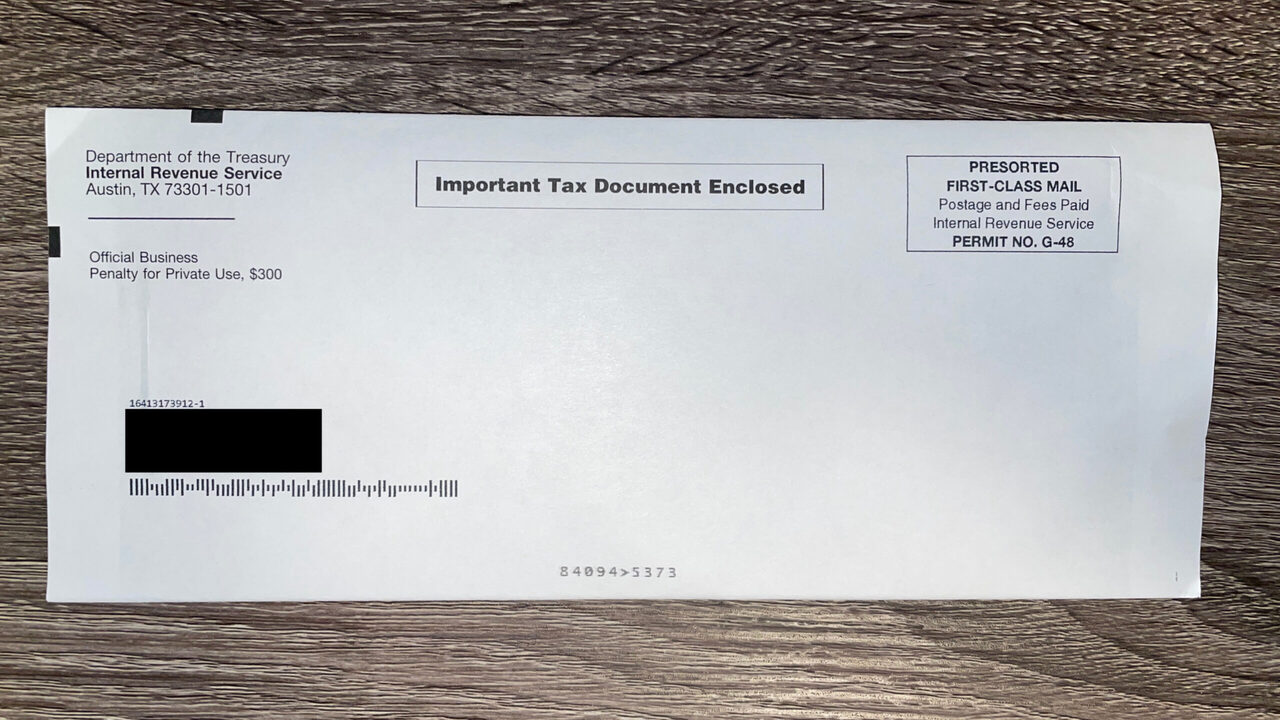

Finance
What Are Accounting Classes Like
Published: October 12, 2023
Discover what accounting classes are like and gain insight into the world of finance. Explore topics such as financial statements, budgeting, and analyzing data.
(Many of the links in this article redirect to a specific reviewed product. Your purchase of these products through affiliate links helps to generate commission for LiveWell, at no extra cost. Learn more)
Table of Contents
Introduction
In today’s fast-paced and ever-evolving world, the field of finance plays a crucial role in both personal and business decision-making. Those who are interested in pursuing a career in finance often turn to accounting classes as a stepping stone towards gaining essential knowledge and skills. Accounting classes provide individuals with a strong foundation in financial management, analysis, and reporting, allowing them to navigate the complex financial landscape with confidence.
Whether you are a business professional looking to enhance your financial acumen or a student embarking on a career path in finance, understanding the fundamentals of accounting is essential. Accounting classes not only teach you how to record and analyze financial transactions but also provide insights into the principles and concepts that underpin the entire field of accounting.
With comprehensive accounting education, you gain the ability to interpret financial statements, understand the impact of various financial indicators on business performance, and effectively communicate financial information to stakeholders. Moreover, accounting classes equip you with the necessary skills to make informed financial decisions, both at an individual and organizational level.
Throughout this article, we will delve into the key topics covered in accounting classes and explore the benefits and insights they can provide. From understanding accounting principles and concepts to diving into financial statement analysis, we will highlight the essential aspects of accounting education. Additionally, we will examine other crucial areas of study, such as managerial accounting, cost accounting, taxation, auditing, and the importance of ethics in the field.
Lastly, we will discuss the various career opportunities available to those who have studied accounting. The demand for skilled accounting professionals continues to grow across industries, making it a promising and rewarding career path for those with a passion for finance and numbers.
So, if you’re ready to embark on a journey of financial understanding and professional growth, join us as we explore the world of accounting classes and the invaluable knowledge they offer.
The Importance of Accounting Classes
Accounting classes serve as the foundation for individuals interested in pursuing careers in finance and related fields. They provide essential knowledge and skills that are crucial for success in the world of business. Understanding the importance of accounting classes can help individuals make informed decisions about their education and career paths.
One of the key benefits of accounting classes is that they provide a solid understanding of financial management principles. Individuals who take accounting classes learn how to analyze financial transactions, record them accurately, and interpret financial statements. This knowledge is vital in making informed financial decisions and effectively managing financial resources.
Accounting classes also teach individuals how to analyze and interpret financial data. They learn to identify trends, assess financial performance, and make predictions about future outcomes. This ability to analyze financial information is essential for businesses to make strategic decisions, evaluate investments, and ensure financial stability.
Moreover, accounting classes cover the fundamental principles and concepts of accounting. Students learn about concepts such as accrual accounting, revenue recognition, and matching principles. These concepts provide a framework for financial reporting that is essential for maintaining transparency and accountability in business transactions.
Additionally, accounting classes introduce students to topics such as taxation, auditing, and ethics in accounting. Understanding taxation laws and regulations is crucial for businesses and individuals to comply with tax obligations. Auditing principles teach students how to assess the accuracy and reliability of financial statements. The ethical considerations in accounting ensure that professionals adhere to ethical standards and maintain the integrity of financial information.
Furthermore, the skills acquired in accounting classes have a wide range of applications. The ability to analyze financial data, understand financial statements, and make informed decisions is valuable in various careers. Whether working as an accountant, financial analyst, auditor, or even a business owner, the knowledge gained from accounting classes is essential for success in the financial world.
Overall, accounting classes are essential because they provide individuals with a solid foundation in financial management, analysis, and reporting. They equip individuals with the skills and knowledge necessary to navigate the complex financial landscape and make informed decisions. Accounting classes open up numerous career opportunities and are a stepping stone towards a successful and rewarding career in finance.
Accounting Principles and Concepts
In order to effectively navigate the world of finance and accounting, it is essential to understand the fundamental principles and concepts that guide the field. Accounting classes provide a comprehensive overview of these principles, equipping students with a solid foundation for financial analysis and reporting.
One of the key principles in accounting is the accrual basis of accounting. This principle states that revenues and expenses should be recognized when they are earned or incurred, regardless of when payment is actually received or made. By following this principle, businesses can accurately reflect their financial performance over a given period of time.
Another essential concept in accounting is the revenue recognition principle. This principle outlines when and how revenue should be recognized in financial statements. It provides guidelines for determining the timing and amount of revenue to be recorded, ensuring that businesses present a realistic picture of their financial performance.
Matching principle is yet another important concept in accounting. It states that expenses should be recognized in the same period as the revenues they help generate. This principle ensures that businesses accurately match the costs incurred to generate revenue, providing a clearer understanding of the profitability of a specific period.
Accounting classes also cover concepts such as the historical cost principle, which states that assets should be recorded at their original cost, and the monetary unit assumption, which assumes that transactions can be expressed and measured in monetary units. These principles help maintain consistency and comparability in financial reporting.
Furthermore, accounting classes introduce students to the concept of materiality. Materiality refers to the significance or importance of information in the decision-making process. It allows businesses to determine what information should be included in financial statements based on its impact on the users of those statements.
Understanding and applying these principles and concepts is essential for accurate financial reporting. By following these guidelines, businesses can provide transparent and reliable information to stakeholders, including investors, creditors, and regulators.
Accounting classes not only teach the principles and concepts of accounting but also provide practical examples and exercises to reinforce understanding. Through hands-on experience, students learn how to apply these principles in real-world scenarios, further enhancing their ability to analyze financial data and make informed decisions.
Overall, a solid grasp of accounting principles and concepts is essential for anyone seeking a career in finance or accounting. These principles form the basis for accurate and reliable financial reporting, providing businesses with the tools they need to effectively manage their resources and make sound financial decisions. Accounting classes equip individuals with the knowledge and skills necessary to navigate the complexities of the financial world and contribute to the success of businesses and organizations.
Financial Statement Analysis
Financial statement analysis is a critical skill that accounting classes teach students, enabling them to evaluate the financial health and performance of businesses. By analyzing financial statements, individuals can gain valuable insights into the profitability, liquidity, solvency, and overall financial stability of an organization.
One of the primary financial statements used for analysis is the income statement, also known as the profit and loss statement. This statement provides a summary of a company’s revenues, expenses, and net income over a specific period. By analyzing the income statement, individuals can assess the profitability of a business by comparing revenues to expenses and identifying trends in profitability over time.
The balance sheet is another essential financial statement used in analysis. It provides a snapshot of a company’s financial position at a specific point in time, showing its assets, liabilities, and shareholders’ equity. By examining the balance sheet, individuals can evaluate the liquidity and solvency of a business, assessing its ability to meet short-term obligations and its overall financial condition.
Additionally, the statement of cash flows provides insights into a company’s cash flows from operating, investing, and financing activities. This statement helps in assessing the cash flow management and liquidity position of a business, as well as understanding how cash is generated and used within the organization.
Financial statement analysis involves various techniques and ratios that allow for a comprehensive evaluation of a company’s financial performance. These include profitability ratios, liquidity ratios, solvency ratios, and activity ratios. Profitability ratios, such as gross profit margin and return on equity, provide insights into a company’s ability to generate profits. Liquidity ratios, such as current ratio and quick ratio, assess a company’s short-term liquidity and its ability to meet current obligations. Solvency ratios, such as debt-to-equity ratio and interest coverage ratio, measure a company’s long-term financial stability and its ability to meet long-term debt obligations. Activity ratios, such as inventory turnover and accounts receivable turnover, analyze a company’s efficiency in managing its assets.
Financial statement analysis is crucial for various stakeholders, including investors, creditors, and management. Investors use financial statement analysis to assess the financial performance and potential future growth of a business, aiding in investment decision-making. Creditors rely on financial statement analysis to evaluate the creditworthiness of a company before extending credit. Management utilizes financial statement analysis to monitor performance, identify areas of improvement, and make informed business decisions.
In summary, financial statement analysis is a vital component of accounting classes as it enables individuals to assess the financial health, performance, and stability of businesses. Through the use of financial statements and analysis techniques, individuals can make informed decisions, identify areas of improvement, and contribute to the success of organizations.
Managerial Accounting
Managerial accounting is a specialized branch of accounting that focuses on providing internal financial information to help management make informed business decisions. Accounting classes incorporate managerial accounting topics to equip individuals with skills necessary to support management in planning, controlling, and decision-making processes.
One of the key areas of managerial accounting is cost behavior analysis. This involves understanding how costs behave in relation to changes in production volume or other factors. By analyzing cost behavior, managers can make better decisions regarding pricing, production levels, and cost control.
Another important concept in managerial accounting is cost allocation. This involves assigning costs to specific products, services, or departments. Accurate cost allocation allows managers to determine the profitability of different segments of the business and make informed decisions regarding resource allocation.
Furthermore, managerial accounting places emphasis on budgeting and forecasting. This involves setting financial targets, creating detailed budgets, and monitoring actual performance against the budget. By comparing actual results to budgeted amounts, managers can identify areas of concern and take corrective actions.
Managerial accounting also includes variance analysis, which involves comparing actual performance against budgeted or standard costs. Variance analysis helps in identifying the reasons behind deviations from expected results, allowing managers to take appropriate actions to address any issues.
Moreover, managerial accounting provides tools for decision-making, such as cost-volume-profit analysis and relevant costing. Cost-volume-profit analysis helps managers understand how changes in volume, price, and costs impact profitability. Relevant costing, on the other hand, focuses on making decisions by considering only relevant costs and benefits, excluding irrelevant information.
Managerial accounting goes beyond financial data and incorporates non-financial information, such as key performance indicators (KPIs) and balanced scorecards. These tools allow managers to evaluate and monitor performance in non-financial areas, such as customer satisfaction, employee productivity, and product quality.
Overall, managerial accounting plays a crucial role in providing the information necessary for effective decision-making and performance evaluation within an organization. The concepts and techniques taught in managerial accounting classes enable individuals to support management in strategy formulation, resource allocation, and performance assessment, ultimately contributing to the success of the organization.
Cost Accounting
Cost accounting is a specialized branch of accounting that focuses on the identification, measurement, and analysis of costs associated with producing goods or providing services. Accounting classes often include lessons on cost accounting to provide individuals with a deep understanding of how costs are incurred and managed within an organization.
One of the primary objectives of cost accounting is to determine the cost of producing specific goods or services. This involves analyzing various cost components, such as direct materials, direct labor, and manufacturing overhead. Cost accountants use different methods, such as job costing and process costing, to allocate costs to specific products or production processes.
Cost accounting also plays a vital role in controlling and managing costs within an organization. This includes implementing cost control measures, analyzing cost variances, and identifying opportunities for cost reduction. By monitoring and managing costs, businesses can optimize their operations, increase profitability, and maintain a competitive edge in the market.
Furthermore, cost accounting provides valuable insights for decision-making. It helps managers evaluate the profitability of different product lines, determine the costs of launching new products, and assess the financial viability of various business decisions. Cost accountants assist in providing accurate cost information and conducting cost-benefit analyses to support informed decision-making.
Another important aspect of cost accounting is budgeting and forecasting. Cost accountants play a key role in setting budgets, planning for future costs, and assessing the financial impact of changes in production levels or cost structures. This allows businesses to anticipate and strategize for future financial scenarios.
Moreover, cost accounting incorporates the concept of cost behavior analysis. By understanding how costs behave in relation to changes in activity levels, managers can make more accurate predictions about future costs and plan accordingly.
Cost accounting also plays a significant role in inventory valuation. By assigning costs to inventory, businesses can accurately determine the value of their goods on hand, whether it is raw materials, work-in-progress, or finished goods. This information is vital for financial reporting and decision-making.
In summary, cost accounting is a critical component of accounting education as it equips individuals with the skills and knowledge to analyze, control, and manage costs within organizations. By understanding cost behavior, allocating costs, and utilizing cost accounting techniques, individuals can contribute to the financial success and sustainable growth of businesses.
Taxation
Taxation is a complex and ever-evolving field that plays a central role in the financial landscape of individuals and businesses. Accounting classes often include a focus on taxation to provide individuals with a comprehensive understanding of the principles and regulations associated with taxation.
One of the key areas covered in taxation is income tax. Individuals and businesses are subject to income tax based on their earnings and profits. Accounting classes teach students how to calculate taxable income, understand different tax brackets, and apply deductions and exemptions to minimize tax liabilities.
Another aspect of taxation is sales tax. Businesses that sell goods or services may be required to collect and remit sales tax to the appropriate authorities. Accounting classes provide an understanding of how sales tax is calculated, collected, and reported, ensuring compliance with tax regulations.
Additionally, accounting classes cover the topic of payroll tax. Businesses that have employees are responsible for withholding and remitting payroll taxes, including Social Security and Medicare taxes. Understanding payroll tax regulations is crucial to ensure accurate and timely compliance.
Furthermore, taxation principles extend to property tax, estate and gift tax, and other specialized forms of taxation. Each has its own set of rules and regulations that individuals and businesses must navigate. Accounting classes provide an overview of these principles and equip students with the knowledge to comply with the relevant tax laws.
Aside from understanding the principles and regulations of taxation, accounting classes also focus on tax planning. Tax planning involves strategically organizing financial affairs to minimize tax liabilities while remaining compliant with tax laws. By utilizing deductions, credits, and other tax planning strategies, individuals and businesses can effectively manage their tax burdens.
Taxation is a constantly evolving field, with tax laws and regulations subject to change. Accounting classes emphasize the importance of staying updated with current tax laws and understanding their implications. This knowledge ensures that individuals and businesses remain compliant and can take advantage of any new tax-saving opportunities.
Overall, taxation is a critical component of accounting education, as it equips individuals with the knowledge and skills necessary to navigate the complexities of tax regulations. Whether for individuals or businesses, understanding taxation is essential for managing tax obligations, minimizing liabilities, and ensuring compliance with tax laws.
Auditing
Auditing is a crucial aspect of accounting that ensures the accuracy and reliability of financial information. Accounting classes often include a focus on auditing to provide individuals with an understanding of the principles and techniques involved in the auditing process.
One of the primary objectives of auditing is to assess the fairness and credibility of financial statements. Auditors review and evaluate financial records, transactions, and internal control systems to determine if they accurately represent the financial position and performance of an organization.
Auditing involves conducting detailed examinations of financial statements, income statements, balance sheets, and cash flow statements. Auditors verify the accuracy of financial data and assess whether proper accounting principles and standards have been applied.
Additionally, auditors assess internal controls within an organization. Internal controls are systems, policies, and procedures that are designed to safeguard assets, prevent fraud, and ensure the reliability of financial reporting. Auditing helps identify weaknesses in internal controls and provides recommendations for improvement.
Auditing can be categorized into two main types: internal auditing and external auditing. Internal auditors work within an organization and focus on evaluating internal control systems, risk management, and operational efficiency. External auditors, on the other hand, are independent professionals who provide an objective assessment of financial statements for external stakeholders, such as investors, creditors, and regulatory bodies.
In addition to financial audits, accounting classes also cover other types of audits, such as compliance audits and performance audits. Compliance audits ensure that organizations comply with applicable laws, regulations, and internal policies. Performance audits evaluate the efficiency and effectiveness of operations, programs, or functions within an organization.
Furthermore, auditing plays a crucial role in providing assurance to stakeholders. Audited financial statements instill confidence in investors, creditors, and other stakeholders, as they are assured that the financial information presented is reliable and accurate.
Ethics is an integral part of auditing. Auditors are expected to adhere to a strict code of professional ethics and maintain independence, objectivity, and integrity throughout the auditing process. Ethical considerations help ensure that auditors provide unbiased and trustworthy assessments of financial information.
In summary, auditing is a vital component of accounting education as it provides individuals with the skills and knowledge necessary to evaluate the accuracy and reliability of financial information. By understanding the auditing process, individuals can contribute to the transparency and accountability of financial reporting, ultimately safeguarding the interests of stakeholders.
Ethics in Accounting
Ethics in accounting plays a critical role in maintaining the integrity, credibility, and public trust in the financial information and reporting process. Accounting classes emphasize the importance of ethical behavior and provide individuals with a solid understanding of ethical principles and standards within the accounting profession.
One of the fundamental ethical principles in accounting is integrity. Accountants are expected to be honest, forthright, and transparent in their dealings. They should accurately represent financial information and not engage in any form of deception or fraudulent activities.
Confidentiality is another key ethical consideration in accounting. Accountants often have access to sensitive financial information, and they have a responsibility to keep this information confidential. They should not disclose confidential information to unauthorized individuals or use it for personal gain or the detriment of others.
Objectivity is an essential ethical principle in accounting. Accountants should provide unbiased and independent assessments of financial information. They should not allow personal biases or conflicts of interest to influence their professional judgment or compromise their objectivity.
Professional competence is vital in maintaining ethical standards in accounting. Accountants should strive to acquire and maintain the necessary knowledge, skills, and expertise to perform their duties competently. Continuous professional development is crucial to stay abreast of new accounting standards, regulations, and industry trends.
Accountants also have a responsibility to comply with relevant laws, regulations, and professional standards. They should be familiar with ethical codes, such as the Code of Professional Conduct issued by professional accounting bodies, and adhere to them in their professional practice.
The concept of independence is crucial in accounting ethics, particularly in external auditing. External auditors should maintain independence from the organizations they audit to ensure unbiased and objective assessments. This independence helps build trust and confidence in the audit process.
Furthermore, ethics in accounting encompasses responsibility towards stakeholders. Accountants have a duty to act in the best interests of the public, investors, creditors, and other stakeholders. They should provide accurate and reliable financial information to enable informed decision-making.
Accounting classes address ethical dilemmas that accountants may encounter and explore techniques for resolving them. Case studies and discussions help individuals develop critical thinking skills and ethical judgment to navigate challenging situations.
By adhering to high ethical standards in accounting, professionals contribute to the reliability and trustworthiness of financial information. They uphold the reputation of the accounting profession and ensure the public’s confidence in the financial reporting process, ultimately promoting the stability and integrity of the financial industry as a whole.
Career Opportunities in Accounting
The field of accounting offers a wide range of rewarding career opportunities for individuals with a strong financial acumen and a passion for numbers. Accounting classes lay the foundation for pursuing various accounting roles, both within organizations and as independent professionals.
One of the most common career paths in accounting is that of a certified public accountant (CPA). CPAs are licensed professionals who provide a range of accounting services, including auditing, tax preparation, and financial advisory. They work for accounting firms, corporations, or even as independent consultants.
Many individuals also pursue careers as financial accountants, responsible for preparing and analyzing financial statements, ensuring compliance with accounting standards, and providing insights into financial performance. Financial accountants often work within organizations, managing internal financial reporting processes and collaborating with external auditors.
Management accountants, on the other hand, focus on providing financial analysis and guidance to help organizations make strategic business decisions. They are responsible for budgeting, cost analysis, and performance evaluation, assisting management in maximizing profitability and optimizing resources.
Tax accountants specialize in tax planning, compliance, and reporting. They work closely with individuals and businesses to understand tax laws, minimize tax liabilities, and ensure accurate and timely filing of tax returns. Tax accountants play a crucial role in ensuring compliance with tax regulations while identifying opportunities for tax savings.
Forensic accountants have a unique role in investigating financial irregularities, such as fraud, embezzlement, and money laundering. They use their accounting skills and expertise to analyze financial data, identify discrepancies, and provide evidence for legal proceedings.
In addition to these traditional accounting roles, advancements in technology have created new career opportunities in areas such as financial analysis, data analysis, and risk management. These roles require a strong understanding of accounting principles combined with proficiency in data analytics and financial software.
Accounting professionals can work in various industries, including finance, healthcare, manufacturing, government, and non-profit organizations. They can also explore career opportunities in consulting firms, where they provide financial advice and expertise to clients across different sectors.
The demand for skilled accounting professionals continues to grow, ensuring a stable and promising career outlook. In addition to technical accounting knowledge, employers also value skills such as critical thinking, problem-solving, attention to detail, and strong communication abilities.
Overall, accounting classes prepare individuals for a wide range of career opportunities in the accounting field. Whether pursuing a path in public accounting, corporate accounting, tax, or specialized areas, accountants play a vital role in the financial success and decision-making processes of organizations.
Conclusion
Accounting classes provide individuals with a strong foundation in finance and equip them with the knowledge and skills necessary to navigate the complexities of the financial world. These classes cover a range of topics, including accounting principles and concepts, financial statement analysis, managerial accounting, cost accounting, taxation, auditing, ethics, and more.
Understanding accounting principles and concepts is essential for accurate financial reporting and decision-making. Financial statement analysis allows individuals to evaluate the financial health and performance of businesses. Managerial accounting provides insights for planning, controlling, and decision-making within organizations. Cost accounting helps businesses determine production costs and make informed decisions about pricing and resource allocation. Taxation knowledge is crucial for compliance and effective tax planning. Auditing ensures the accuracy and reliability of financial information, while ethics in accounting maintains trust and integrity.
Career opportunities in accounting are diverse and rewarding. Certified Public Accountants (CPAs), financial accountants, management accountants, tax accountants, forensic accountants, and financial analysts are just a few of the roles available in the accounting field. These professionals work in various industries and organizations, providing essential financial services and contributing to the success of businesses.
In conclusion, accounting classes are invaluable for anyone interested in pursuing a career in finance. They provide the necessary knowledge and skills to navigate the accounting landscape, make informed decisions based on financial data, ensure compliance with regulations, and uphold ethical standards. By studying accounting, individuals gain a strong foundation in finance and open doors to numerous career opportunities in the dynamic and ever-evolving field of accounting.














